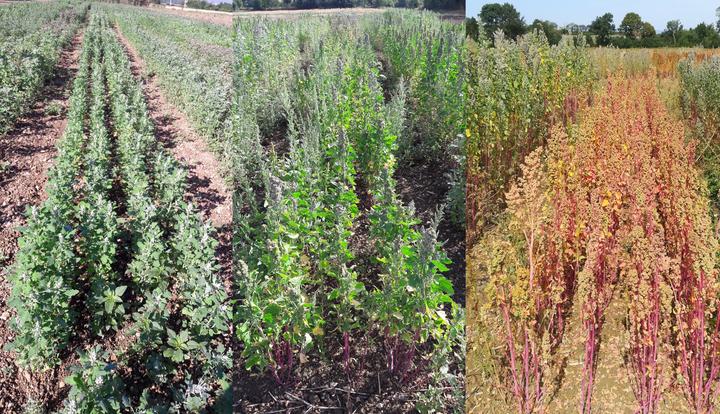Quinoa- ¿Opción de cultivo en Álava? Búsqueda de variedades productivas y de alta calidad bajo condiciones climáticas actuales y futuras

Climate change supposes an alteration of the main environmental factors that affect the productivity and quality of crops that, together with the increase in food demand by the world’s largest population, puts future food security in risk. The scenarios predict an increase in atmospheric CO2, a higher temperature and an increase in the intensity and duration of droughts, which will imply changes in productivity and quality. An alternative is the search for species more tolerant to these environmental stresses, quinoa being one of the possible species, thanks to its high tolerance to drought and salinity. In addition, it is necessary to reduce the use of organic and phosphorous fertilizers in order to reduce the environmental impact of both the contamination of fresh water reserves and the greenhouse gas emissions associated with the fertilizer manufacturing process. For this, it is very important to promote ecological agricultural practices. In this sense, quinoa can also be a very interesting species to be cultivated through ecological agricultural practices since the demand is increasing due to its high nutritional value, higher than that of cereals with gluten; especially because of its high protein content (approximately 16%), its excellent digestibility (92%) and balanced content of essential amino acids, such as lysine and methionine, characteristics highly appreciated by groups committed to the environment and health. Although various studies are being carried out on its adaptation to different regions, there is still a long way to go to find the right variety, cycle and cultivation needs. Therefore, the objective of this research project will be, from a multiscalar analysis, on the one hand, to verify the degree of adaptation in the Alava plain of different quinoa cultivars and, on the other hand, to study the incidence of drought in production and grain quality in field studies using ecological agricultural practices. The approach will range from production studies to molecular and biochemical analyzes, allowing the interrelation between different study scales and obtaining results of both basic and applied knowledge, with the aim of maintaining food security in future climatic conditions and under premises of sustainability.